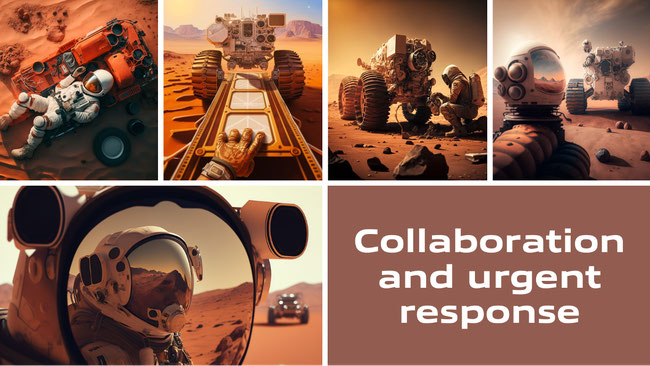We know that creativity and conceptual tasks requiring collaboration between crew members declines in performance as the duration of a mission increases (Larson et al., 2019). It is thus important to focus training not only on individual tasks but on tasks that require collaboration and creative agility. In addition, unanticipated events can cause simple tasks to become more challenging. Training under such conditions can better prepare trainees for a range of situations.
The scenario I have proposed involves two main aspects: collaboration on a task, and response to an unexpected event interrupting that collaboration.
This two part scenario first involves the task of unbogging a rover and second to respond to a medical issue encountered by a fellow astronaut.
Part 1 utilises 6 assets to complete the task of unbogging the rover: a rover, a shovel to dig under a wheel, loose soil that is moved as part of digging, a ramp to place under the wheel and mallet to wedge it further under, and a fellow astronaut to interact with via hand signals to co-ordinate driving the rover forward and altering positioning of the ramp.
Part 2 takes place immediately after the conclusion of Part 1 and is initiated by the fellow astronaut becoming unresponsive. Using one additional asset (a wrist monitor), it is the task of the agent to attend to the fellow astronaut, move them out of the rover and into the recovery position, check vitals and call for help.
